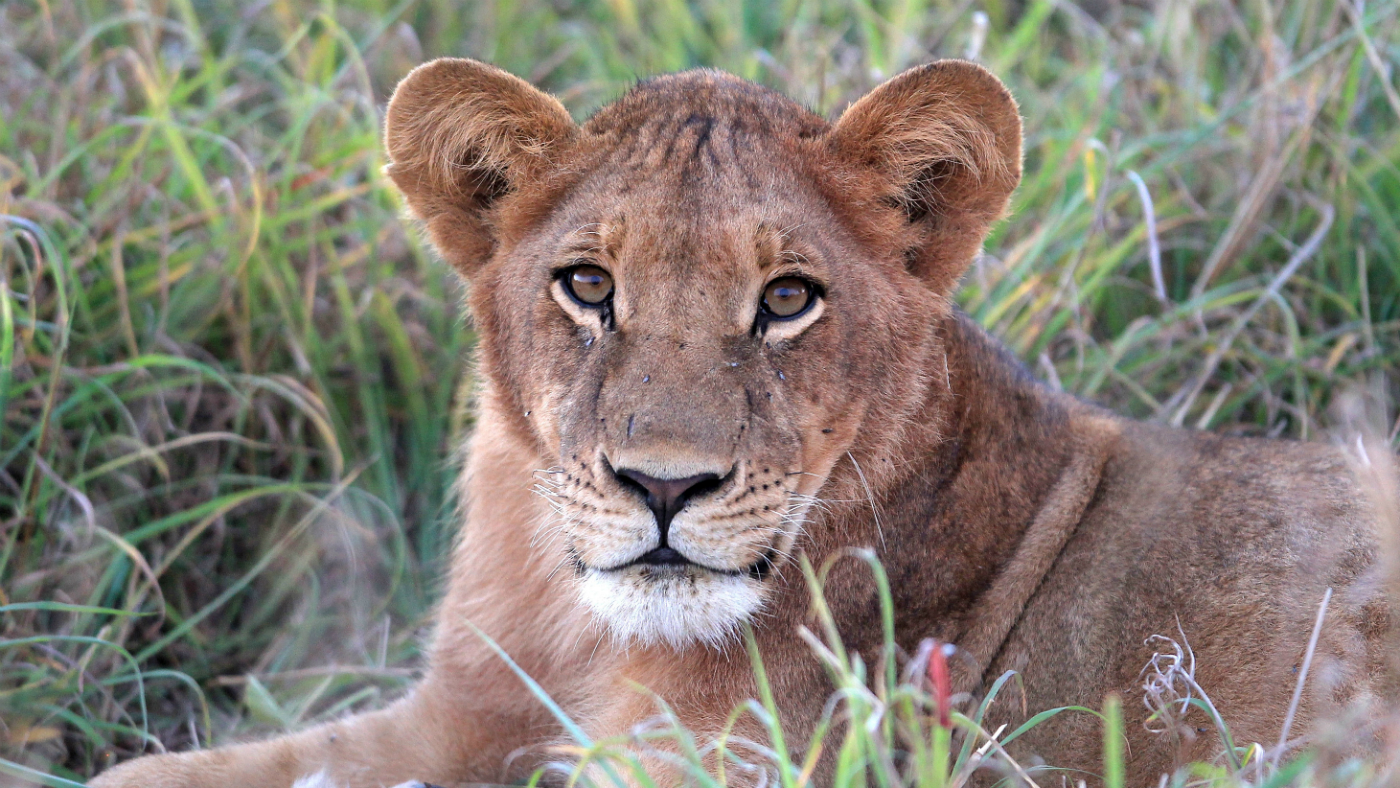Pride of lions poisoned in Ugandan national park
Three lionesses and eight cubs were killed in the Queen Elizabeth National Park after attacking cattle

A free daily email with the biggest news stories of the day – and the best features from TheWeek.com
You are now subscribed
Your newsletter sign-up was successful
Eleven lions have been killed at Uganda’s most popular wildlife reserve, authorities have confirmed.
Three lionesses and their eight cubs were found dead at Hamkungu village, an enclave of Queen Elizabeth National Park on Wednesday.
There are estimated to be fewer than 100 lions in the park and just 400 in the entire country, the Ugandan Daily Monitor reports.
The Week
Escape your echo chamber. Get the facts behind the news, plus analysis from multiple perspectives.

Sign up for The Week's Free Newsletters
From our morning news briefing to a weekly Good News Newsletter, get the best of The Week delivered directly to your inbox.
From our morning news briefing to a weekly Good News Newsletter, get the best of The Week delivered directly to your inbox.
“It is true we lost a pride, three mothers and eight young ones,” said Bashir Hangi, from the Uganda Wildlife Authority.
“We are suspecting poisoning,” he added. “The information we have is that they attacked someone’s cow but we are yet to establish who exactly.”
Herders often bring their livestock into the park for both grazing and water, particularly in the dry season, according to the Wildlife Conservation Society.
Officials have launched an investigation into the deaths and vowed to punish those responsible.
A free daily email with the biggest news stories of the day – and the best features from TheWeek.com
“The sad reality is that people living near lions don’t have the luxury of simply avoiding them,” Michael Schwartz wrote for National Geographic after visiting the park last year.
“So, they naturally take matters into their own hands, which unfortunately often ends up with not one, but multiple dead lions, especially when inexpensive poison is involved,” he said.
-
 ‘Poor time management isn’t just an inconvenience’
‘Poor time management isn’t just an inconvenience’Instant Opinion Opinion, comment and editorials of the day
-
 Bad Bunny’s Super Bowl: A win for unity
Bad Bunny’s Super Bowl: A win for unityFeature The global superstar's halftime show was a celebration for everyone to enjoy
-
 Book reviews: ‘Bonfire of the Murdochs’ and ‘The Typewriter and the Guillotine’
Book reviews: ‘Bonfire of the Murdochs’ and ‘The Typewriter and the Guillotine’Feature New insights into the Murdoch family’s turmoil and a renowned journalist’s time in pre-World War II Paris
-
 Epstein files topple law CEO, roil UK government
Epstein files topple law CEO, roil UK governmentSpeed Read Peter Mandelson, Britain’s former ambassador to the US, is caught up in the scandal
-
 Iran and US prepare to meet after skirmishes
Iran and US prepare to meet after skirmishesSpeed Read The incident comes amid heightened tensions in the Middle East
-
 Israel retrieves final hostage’s body from Gaza
Israel retrieves final hostage’s body from GazaSpeed Read The 24-year-old police officer was killed during the initial Hamas attack
-
 China’s Xi targets top general in growing purge
China’s Xi targets top general in growing purgeSpeed Read Zhang Youxia is being investigated over ‘grave violations’ of the law
-
 Panama and Canada are negotiating over a crucial copper mine
Panama and Canada are negotiating over a crucial copper mineIn the Spotlight Panama is set to make a final decision on the mine this summer
-
 Why Greenland’s natural resources are nearly impossible to mine
Why Greenland’s natural resources are nearly impossible to mineThe Explainer The country’s natural landscape makes the task extremely difficult
-
 Iran cuts internet as protests escalate
Iran cuts internet as protests escalateSpeed Reada Government buildings across the country have been set on fire
-
 US nabs ‘shadow’ tanker claimed by Russia
US nabs ‘shadow’ tanker claimed by RussiaSpeed Read The ship was one of two vessels seized by the US military